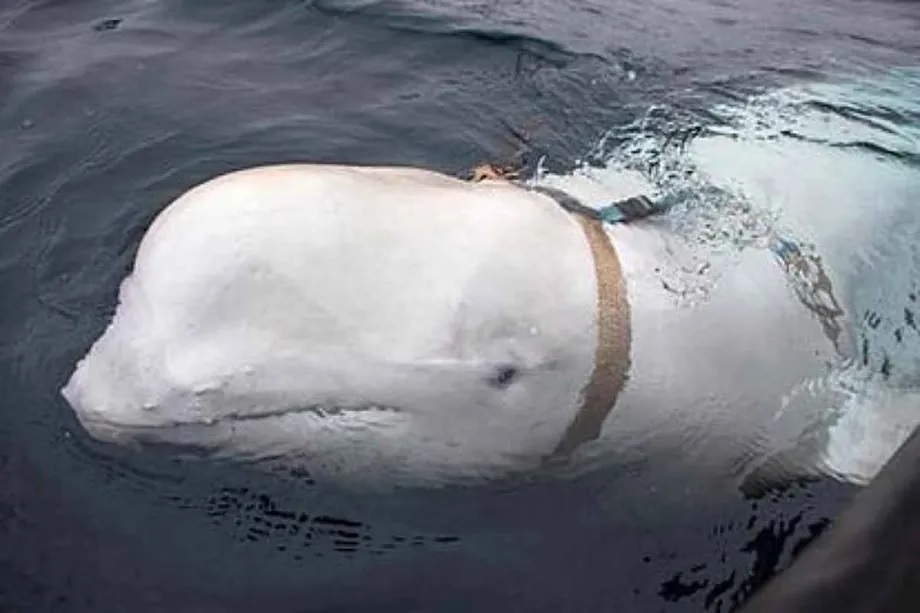Two months after being found dead on the shores of Norway, the beluga whale Hvaldimir is back in the news following the release of a BBC documentary, which reveals some details about its origin.
First sighted in the waters of Norwegian Arctic in 2019, the fact that it was wearing a harness around its head, equipped with a base for a small camera, with the inscription St.Petersburg Equipment in English, raised suspicions that it was used by the Russian navy. It was then renamed as Hvaldimir, combining the Norwegian word for whale (hval) and the name of the Russian president, Vladimir Putin.
Now, Dr. Olga Shpak, an expert in the species, claims in the documentary Secrets of the Spy Whale that Hvaldimir belonged to the Russian military, but was not a spy. Her theory is that it was being trained to protect a naval base in the Arctic Circle, but it was a "mischievous, active" animal and escaped from there.
Dr. Shpak, who worked in Russia researching marine mammals from the 1990s until she returned to her native Ukraine in 2022, told the BBC that she was "100%" convinced that the Russian military had trained the beluga, although Moscow never commented on the matter.
Shpak's account is based on conversations with former colleagues in Russia, whom she does not identify. She claims that when the beluga whale was discovered in Norway, the Russian caretakers of the mammals recognized it as one of theirs and identified it as Andruha, a missing specimen.
According to the expert, the whale was captured in the Sea of Okhotsk in 2013. A year later, it was transferred to the military program in the Russian Arctic. "I think when they started training in open waters, trusting that the animal wouldn't swim away, it simply left them," she says, according to the BBC.
After the first sighting in the Arctic, it continued moving along the Norwegian coast southward and a year ago was located on the south-west coast of Sweden. In early September, an NGO tracking its movements reported that it had been found dead in southwestern Norway.
